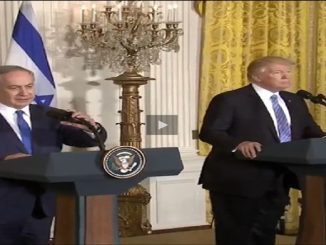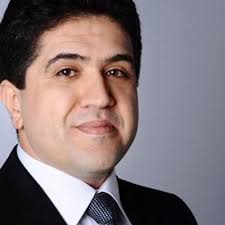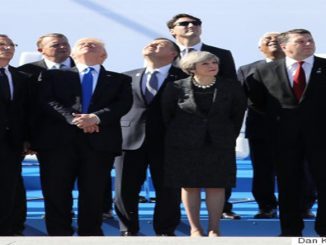
On top of that; there is a correlation between the ultra-right, racism, Islamophobia and EU opposition in Europe and the attitude European politicians have adopted towards the Syrian issue. Another example for the issue would be: some ultra-rightist MPs like Thierry Mariani did not hesitate to openly show their support to Assad. Daesh was used and exploited as a tool to acquit Assad of his crimes, which then increased Islamophobia, xenophobia and then racism. While the racist and ultra- nationalist campaigns increased during election periods, the sudden flocking of refugees just made things worse. For example, recently the Republican Party of France, led by the ultra-rightist Mariani and five others, and the far-right National Front Party with 25 MPs visited Damascus. The picture the French politicians gave with Assad (to supposedly show Daesh that they are in cooperation) resembled pictures of Nazis trying to get a photo with Hitler.On the other hand, the threat of terrorism and security issues brought with it limitations to freedoms which consequently caused freedom of movement to be questioned. The increase in racism and protectionism brought the issues of border security and national sovereignty to discussion. And then the unexpected happened; like the first Domino stone, England decided to leave the EU. The EU found itself at the verge of falling apart, despite being in the center of the modern world. The EU had not even experienced such separation requests to this extent five years ago during the financial crisis caused by the U.S.
Turkey’s relations with the EU were affected in a negative manner, too. Although not stopping officially, Turkey’s progression in the EU member process started skidding. With the help of the FETO members in the government, chaos and unrest started to increase. Issues like freedom of press and judicial independence then led to abusing the dialogue Turkey had with the EU. Moreover, after the U.S.-led coalition legalized the PYD (the Syrian wing of PKK) supposedly against Daesh, this terror organization started to freely open offices in Europe and increase its organization. The support Europe gave FETO in terms of lobbying, the areas it opened up for the PKK, the interesting allegations on media about Turkey supporting Daesh, and the accusations on Erdogan restricting the freedom of press since the Gezi incidents, caused tension to increase between Turkey and the EU. Yet, when the refugee influx caused panic (despite xenophobia), the European leaders found themselves knocking on Turkey’s door.
In the period visa exemption was brought forward with the readmission agreements, the EU decided on a 3+3 billion Euro aid campaign to Turkey, despite it leaving Turkey to carry this refugee burden alone from the start.
In the meantime, while the aid amount Turkey provided reached 25 billion dollars, the 100 million Euros said to have already been released hasn’t reached Turkey yet.
The disappointment the European countries felt when the July 15 coup attempt failed ended 40 days later as they are now trying to make up for the lost time in between.
While the traffic between the EU capitals and Ankara have increased in recent days, the Euphrates Shield Operation stands right in the middle of these elaborate issues. Around 50 coalition countries led by the U.S. were openly supporting the PYD terror organization, claiming that it was the best organization in the field to stand against Daesh. But, the Turkish Armed Forces, with the support of the Free Syrian Army, cleaned all Daesh terrorist forces out of the borderline, and at the same time proved that the Obama administration’s Syrian politics were a failure.
Ömer Çelik, the Minister to the EU and Chief Negotiator roaming Europe with two folders, one named ‘FETO’ and the other ‘bilateral relations with the EU’, drew attention to this issue during his meetings in Lisbon. He underlined that the wrong calculation the West made was not a subjective calculation mistake, but a mathematical reality. This mistake will continue to be discussed in the EU countries, as the Euphrates Shield, expected to go towards a safe zone in the north of Syria, moves deeper into Syria. Let’s wait and see if the EU leaders will realize the mistake they made by sitting on the U.S’ tail. Or will they just close their eyes and continue to be dragged towards the cliff?
*Merve Şebnem Oruç is a Turkish journalist and columnist.
(Published in Yeni Şhafak on Thursday, Sept. 8, 2016)



